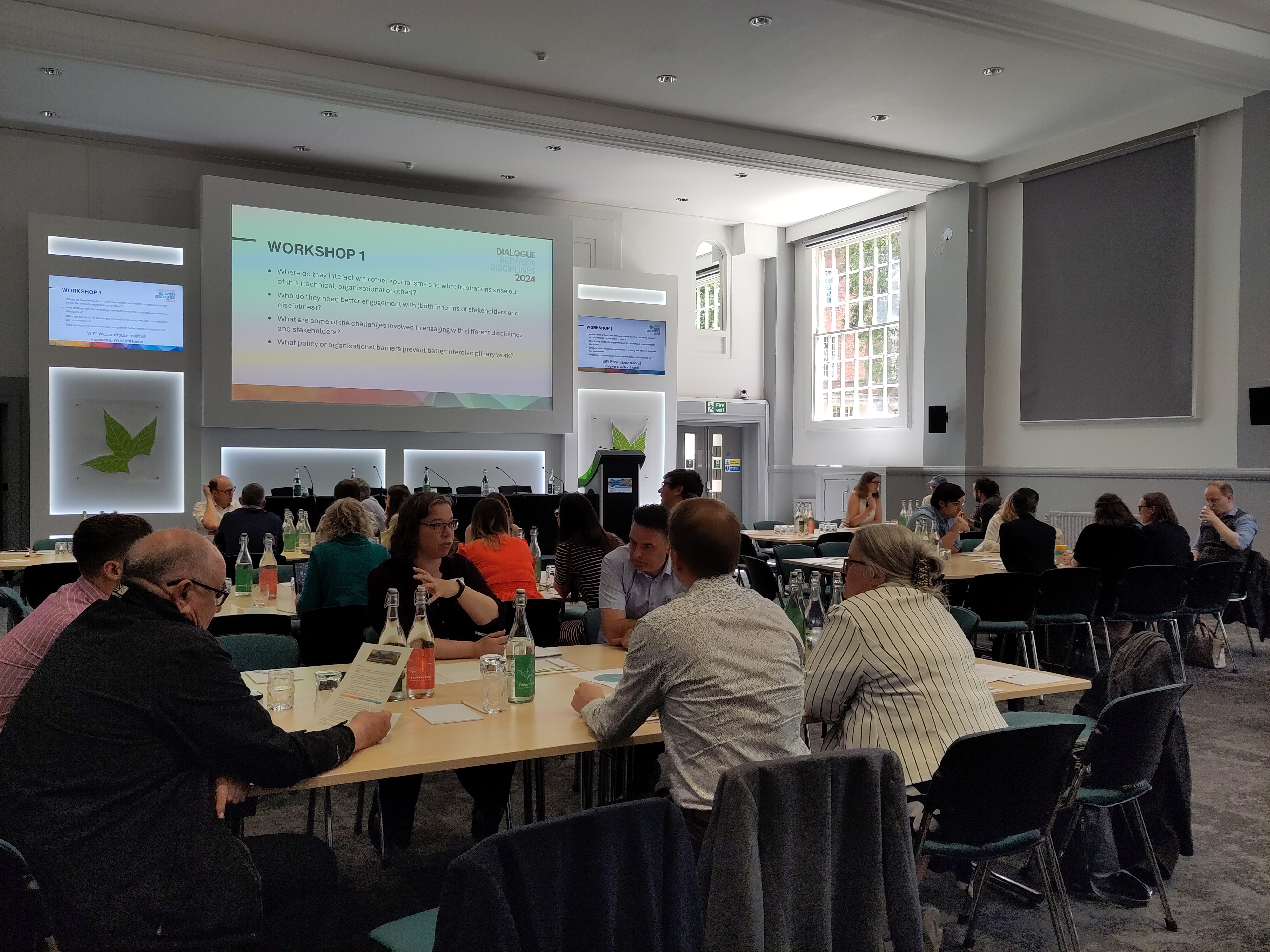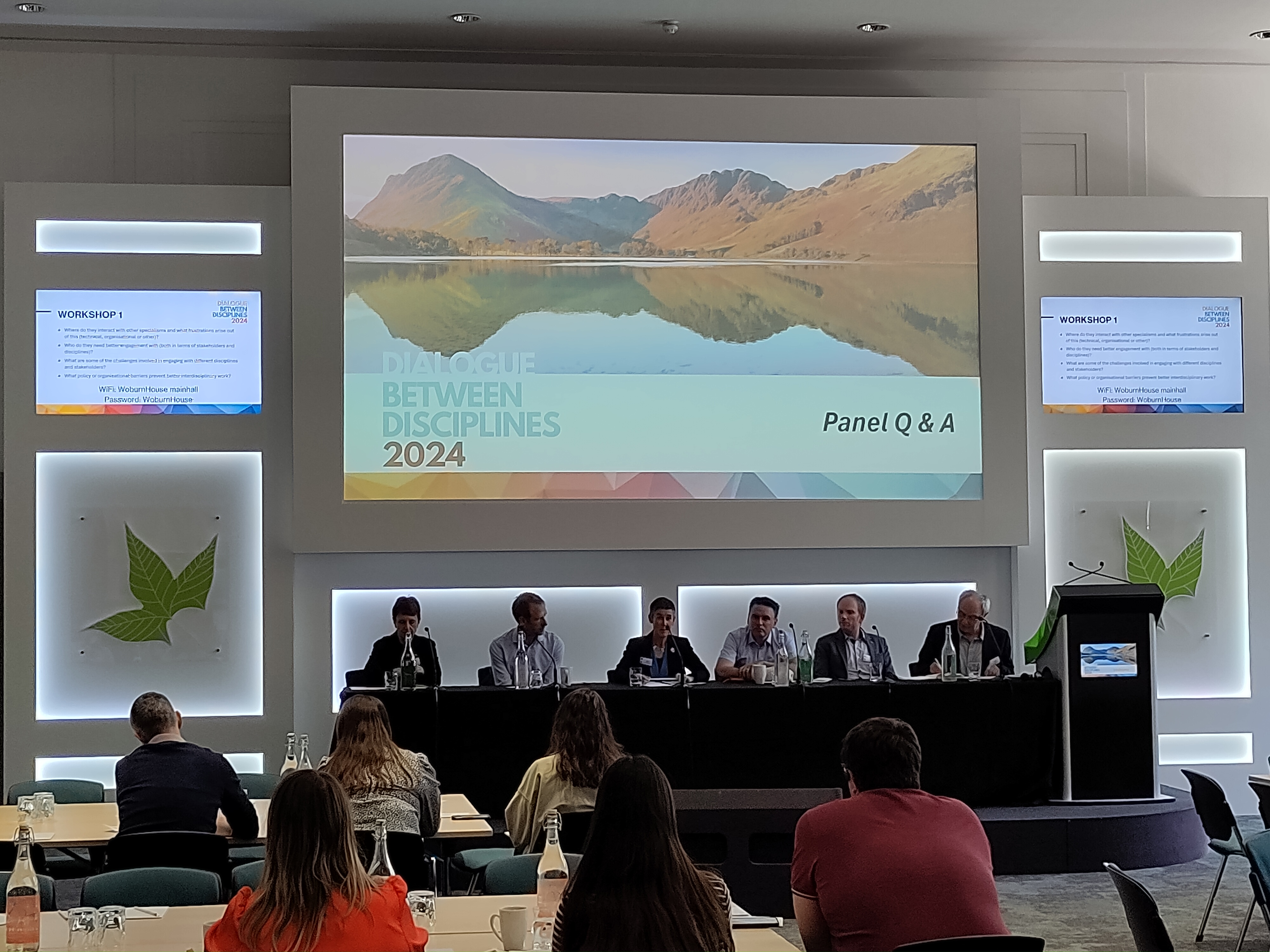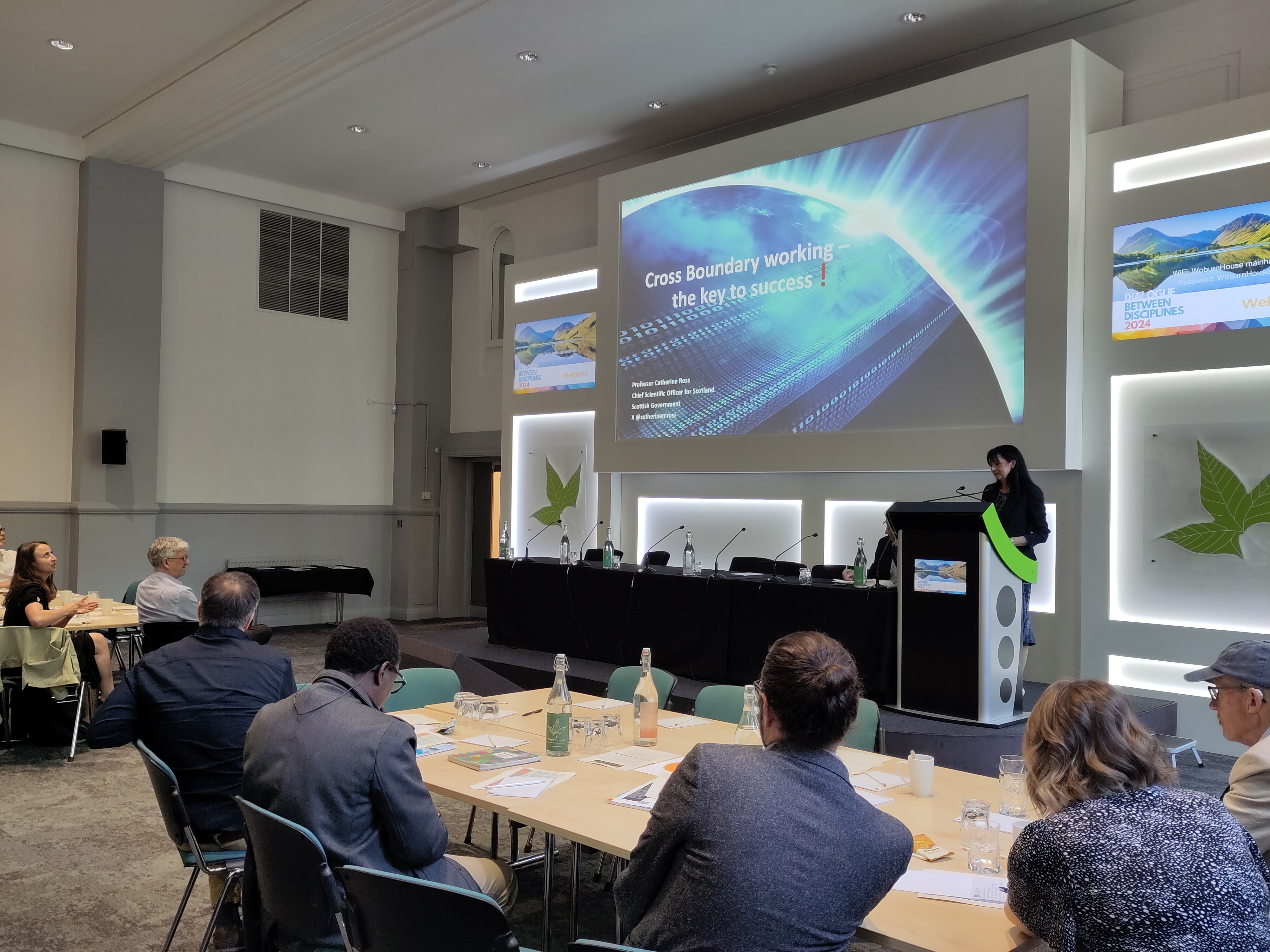Since the founding of the IES in 1972, the profession has grown considerably and now spans expertise across air quality, land condition, water, and beyond. In recognition of the interconnected nature of the challenges facing our environment and the IES's unique position in spanning disciplines across the environmental sector, we launched our inaugural Dialogue Between Disciplines Conference in May 2024.
The Dialogue Between Disciplines conference brought together the IES Communities with the aim to break down silos and encourage a collaborative approach to environmental challenges that brings together the unique strengths and perspectives of various disciplines. A Community is a group of members brought together around a shared professional interest, goal, or challenge.The IES Communities are an integral part of the IES ecosystem, providing thought leadership for their area of focus, and a forum for members to network, collaborate and shape their sector. The current Communities are CEDHE, Climate Action Community, Environmental Impact Assessment, EPIC, FWR, IAQM, Land Condition and Marine and Coastal Science.
The conference programme was designed to facilitate rich discussions between specialisms and facilitate collaborations that could lead to innovative and practical steps we can take forward individually and collectively. The morning presentations set the context of the day, and helped to expand our thinking, though thought-provoking presentations on topics related to interdisciplinarity and systems thinking.
Workshop 1 – Key Barriers and Challenges
The first conference workshop focused on the barriers and challenges faced by environmental sciences in their daily work in addressing the interdisciplinary and cross disciplinary challenges. We asked each group to think about the following questions and we have included some of the feedback below:

Following the first workshop we had five case study presentations to showcase interdisciplinary in action. This was to help the attendees start to think about potential solutions to some of the challenges discussed and explore how we can overcome the barriers and challenges raised at the first workshop. We wanted to make the day as interactive as possible so we asked the case study presenters to take part in a panel discussion and Q&A session.
Key points from the Q&A session

Workshop 2 – Solutions and coping strategies
The purpose of the second workshop was to start to flag potential ‘solutions’ to the challenges emerging. We wanted attendees to focus on potential solutions at an individual, specialism and/or interdisciplinary perspective. We wanted to identify what we ‘need’ to facilitate these solutions and what we think we can ‘offer’ at each level. The questions and feedback from these workshops are detailed below:
Keynote Speaker
Our Keynote Speaker on the day was Catherine Ross, Chief Scientific Officer, Scottish Government. Catherine discussed how they brought together the Scottish Government, NHS and NatureScot in a multi-stakeholder process. Some of the key points from Catherine's presentation were

- Cross-boundary work is essential, with diverse groups solving problems and driving systemic change
- The Scottish National Performance Framework is key for aligning disparate policy areas and guiding actions
- Partnerships across all sectors are vital for tackling healthcare and climate connections
- Innovation, both bottom-up and top-down, with a focus on sharing learning and scaling up, is crucial
- Monitoring is key, with the National Sustainable Assessment Tool and mandatory reporting aiding national targets
- Clear communication of progress on shared goals and objectives is important
- Trust, respect, and defined roles enable effective relationship building and value addition
- Cultural competence is critical, ensuring diverse perspectives are respected
Reflections